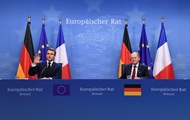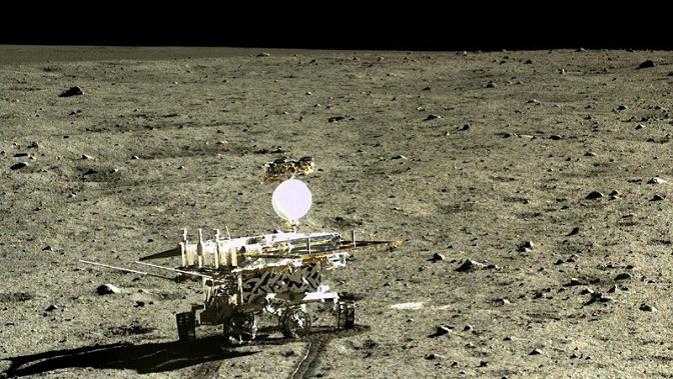At the EU summit, they unanimously threatened the Russian Federation with powerful sanctions in the event of further aggression against Ukraine. But what they will be, they did not announce, expressing the hope that this will not come to this.
For several weeks now, Western leaders have not tired of warning Russia against escalating the conflict with Ukraine. If Russia goes to war, it will have to pay a high price, they add. However, what this price could be, they do not say.
At the EU summit (officially the EU Council summit) on December 16 in Brussels, this became almost the main topic.
EU: Russia must reduce tensions near Ukraine’s borders
It took the leaders of the EU countries about two hours to discuss Ukraine and Russia, as well as Belarus. It was for this session that the presidents and prime ministers were asked to leave their phones outside the conference room to ensure the confidentiality of the discussion on a particularly sensitive topic.
As a result, the leaders of the EU countries agreed on a joint statement. “The European Council underlines the urgent need for Russia to reduce tensions created by the buildup of troops near its borders with Ukraine and aggressive rhetoric,” the summit said in a statement.
The EU leaders reaffirmed their full support for the sovereignty and territorial integrity of Ukraine.
“The response to any further military aggression against Ukraine will be large-scale consequences and a harsh cost, including restrictive measures coordinated with partners,” warns the communiqué.
At the same time, the European Council expressed support for diplomatic efforts, in particular, in the “Normandy format”, with the aim of full implementation of the Minsk agreements.
Will the EU impose sanctions on Russia?
There is nothing else in the communique regarding Ukraine and Russia. And, nevertheless, the EU has been working on this short text for more than one day. What does it mean?
President of Ukraine Volodymyr Zelenskyy the previous day during the Eastern Partnership Summit in Brussels called on his EU colleagues to impose sanctions before a possible escalation by Russia. In his opinion, it is precisely proactive measures that are needed to prevent Russian aggression.
The communiqué of the EU summit makes it clear that there will be no pre-emptive sanctions. The document clearly indicates that now the European Union will focus on diplomacy, and the sanctions will be introduced only in response to further aggression.
And even Lithuanian President Gitanas Nauseda, who is a supporter of a tough policy towards Russia, disagreed with Zelenskiy that post-factum sanctions would be ineffective.
“These sanctions should keep Russia from invading or any other kind of aggression against Ukraine. I think this is a good tool, a strong political signal to Russia,” he said and expressed the hope that this signal, given by the EU and other countries, including the United States, would be enough to contain the RF.
What sanctions is the EU ready to impose against the Russian Federation for aggression against Ukraine?
None of the politicians at the EU summit disclosed possible measures against Russia. “Our position is to give a powerful signal, but not to tell what the reaction will be. Not to disclose what we will do is part of the strategy,” said a high-ranking DW source in the EU structures.
However, it was not the task of the EU summit to prepare specific measures. For this there is the European Commission. And even earlier she had prepared five scenarios with possible sanctions against Russia – such a task was given to her by the European Council back in June.
But as the situation changes, then, according to the President of the European Commission Ursula von der Leyen, it became necessary to coordinate possible measures with other countries, in particular, the United States.
“This is an ongoing process … We want good relations with Moscow, but we are prepared in case of further aggression,” she assured.
Why won’t the options be published? A diplomat from one of the EU states replies: “If we want de-escalation, this will be the wrong signal.” A Brussels official explains that if the EU names specific options for responding to certain actions, it will not only tie its own hands, but may also provoke Russia.
Is there unity in the EU over the reaction to Russia’s actions?
Recently, Bloomberg wrote about the disagreements within the European Union over the imposition of sanctions in the event of aggression from the Russian Federation. Before the start of the summit, the EU and Polish Prime Minister Mateusz Morawiecki said there were differences over sanctions “with some Western European countries.”
However, Moravetsky’s statement is a confirmation of the well-known fact that Western Europe has a less harsh approach to sanctions policy towards the Russian Federation than in Central and Eastern Europe.
But on the issue of readiness for a tough reaction in the event of aggression from Russia, all DW sources among EU diplomats and officials assure the unity within the European Union.
There are indeed differences in the rhetoric of different EU countries. Thus, French President Emmanuel Macron, speaking at the end of the summit, did not repeat the threat of sanctions. Instead, he talked about finding a political solution through dialogue and about helping Ukraine.
But the new German Chancellor Olaf Scholz, who gave a press conference together with Macron, repeated the warning to Russia. According to him, those who are trying to change borders in Europe “should be clear that they need to expect an appropriate response.” And on this, Scholz specified, all EU leaders are unanimous, and he and Macron in particular.
According to a diplomat from one of the EU countries, due to the buildup of Russian troops near the borders of Ukraine in the EU, differences in views on the Russian Federation have even decreased.
“I am 100% sure that if Russia crosses the line that we have drawn, then everyone will be ready to impose sanctions, and sanctions that will hurt a lot, in particular for us. Because if the sanctions do not harm you, then these are not real sanctions. “, – said the source.
Where does this line go? The European Union is also not going to say this for strategic reasons.
A source: Russian service DW
– .


